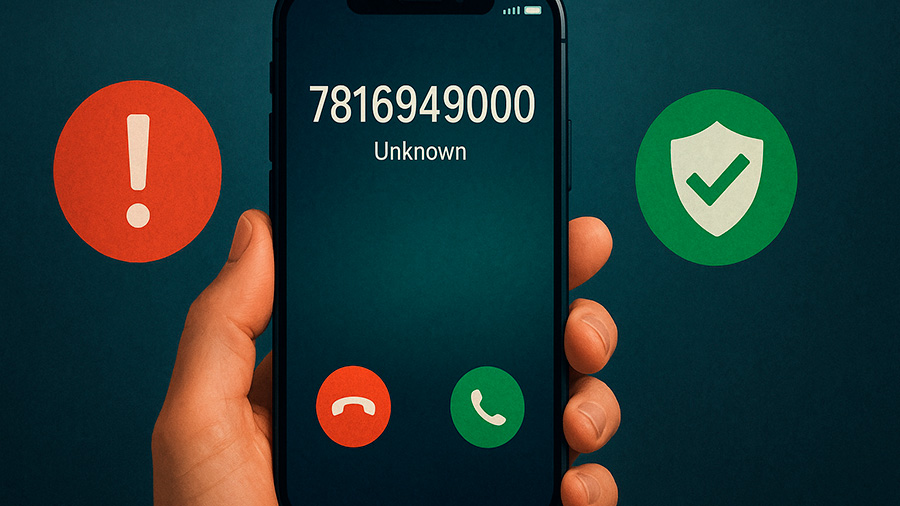
Few things create as much stress as answering a call from an unfamiliar number, especially when you suspect it might be a creditor or collection agency. Many people wonder what these calls mean, whether they are legitimate, and how best to react. In this article, we’ll explore why financial institutions and agencies reach out by phone, how to tell a genuine call from a scam, and what steps you can take to protect yourself. We’ll also include a 7816949000 Call Explanation as an example of how to deal with such situations effectively.
Why Credit Agencies Contact Borrowers by Phone
When someone falls behind on a loan, misses a credit card payment, or forgets about a bill, creditors often try to reach out by phone before taking other action. Sometimes these calls are friendly reminders; other times they are more insistent. Calls from unfamiliar numbers can also be linked to repayment plans, settlement offers, or negotiations. A 7816949000 Call Explanation illustrates the broader reality of how agencies use these calls as part of their outreach strategy.
Legitimate vs. Suspicious Calls
Not every call from a strange number is something to worry about. But some can be red flags. Here are signs that help separate genuine financial calls from possible scams:
- Legitimate calls: The caller identifies the company clearly, mentions your account details, and offers to send written documentation.
- Suspicious calls: The caller pressures you to pay immediately, threatens legal action, or asks for unusual payment methods like gift cards or wire transfers.
Table: Comparing Types of Calls
| Genuine Calls | Scam Attempts |
|---|---|
| Provide company name and account details | Vague or no information about the debt |
| Offer repayment options and written proof | Demand instant payment without documentation |
| Accept standard payment methods | Request gift cards or unusual transfers |
| Respect your right to verify information | Refuse to answer questions |
How to Handle These Calls
Dealing with unexpected creditor calls doesn’t have to be overwhelming. The best approach is to stay calm and follow practical steps. These include:
- Gather Information: Ask for the caller’s name, company, and contact number.
- Request Proof: Ask for written confirmation of the debt before making payments.
- Check Records: Compare the information with your own account statements.
- Seek Guidance: Contact a financial counselor or legal aid if you feel pressured.
- Report Scams: If the call seems fraudulent, notify the Federal Trade Commission (FTC).
Why Calls Matter Across All Ages
These calls don’t target one group alone. Young adults may get reminders about student loans, middle-aged borrowers could hear about mortgages or credit cards, and older adults might face calls regarding medical bills. A clear 7816949000 Call Explanation shows that no matter your age, knowing how to manage these situations helps protect your finances and peace of mind.

Common Mistakes to Avoid
Without the right knowledge, people often make mistakes when responding to financial calls. These include:
- Paying immediately without verifying the caller’s identity.
- Ignoring calls that may actually relate to legitimate accounts.
- Sharing sensitive personal details over the phone.
- Failing to keep written notes of conversations.
Table: Steps for Smart Response
| Step | Action | Why It Helps |
|---|---|---|
| Stay calm | Listen carefully before reacting | Reduces stress-driven mistakes |
| Verify legitimacy | Request documentation by mail | Ensures the debt is real |
| Review personal accounts | Match details to your records | Confirms accuracy |
| Seek professional help | Talk to credit counselors | Provides guidance and protection |
| Report scams | Contact the FTC or CFPB | Prevents others from being misled |
The Role of Credit Assistance
Professional credit help can make a huge difference. Counselors and nonprofit agencies often assist by reviewing debt, negotiating with creditors, and providing repayment strategies. For individuals who feel overwhelmed by persistent calls, having professional support removes much of the stress. These services also ensure that creditors follow fair practices under consumer protection laws.
Technology’s Role in Managing Calls
Modern tools make it easier to handle unfamiliar numbers. Caller ID apps, credit monitoring services, and budgeting platforms all provide context for incoming calls. Some apps even identify likely scam numbers before you answer. Combined with a cautious approach, technology ensures that you are never caught completely off guard.
Final Thoughts
Unknown calls can be unsettling, but they don’t have to control your day. By learning how to tell the difference between genuine creditor outreach and fraudulent attempts, you protect your finances and your peace of mind. Every borrower, regardless of age or experience, should know how to respond. Taking a measured approach—asking questions, verifying details, and seeking guidance if necessary—ensures that these calls remain manageable instead of overwhelming. At the end of the day, a well-understood 7816949000 Call Explanation offers clarity and confidence in dealing with any creditor or collector outreach.
